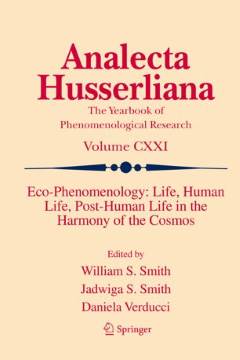Repository | Book | Chapter

(2018) Eco-Phenomenology, Dordrecht, Springer.
The origin of life is one of the great unsolved paradoxes in human understanding. In fact, if, according to the natural philosophers since ancient times, nothing comes into being from not-being, how could life emerge from non-life?On the basis of the intuitive solution to the matter of change provided by the Ionian Greek philosopher Anaxagoras (fifth century BCE), we will attempt to resolve the problem of the origin of life by devising a zoogony in which change between opposites does not involve a contradiction or a paradox.Because it has been universally recognized that there is no change between contradictory opposites such as nonlife and life, we transform their absolute opposition into a relative opposition in which life is generated from nonlife insofar as it is already present in nonlife, though in an imperceptible or implicit manner. This leads us to conclude, with Louis Pasteur, that omne vivum e vivo—that all life is derived from antecedent life (1857). If all life is generated from life and, thus, if all life continues to exist beyond its original position in space-time—that is, if life is more than itself and after itself—what is the nature and founding principle of life, and what is the impact of the continuity of life on the question of life's local uniqueness or ubiquity within the universe? If all life is generated from life, is it possible to build a lifeless robot having the properties of a living being?
Publication details
DOI: 10.1007/978-3-319-77516-6_9
Full citation:
Soteropoulos, I. (2018)., The origin paradox: how could life emerge from nonlife?, in W. S. Smith, J. Smith & D. Verducci (eds.), Eco-Phenomenology, Dordrecht, Springer, pp. 87-113.
This document is unfortunately not available for download at the moment.



